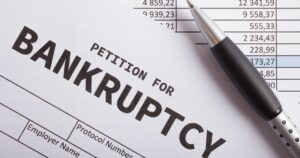Can you use bankruptcy to manage your tax burden? Heavy tax burdens, whether it is past due state taxes or taxes due to the Internal Revenue Service (IRS), are stressful for any consumer. For most cases of tax debt, you cannot discharge those taxes through bankruptcy. While this sounds discouraging, you still have options for managing those tax balances.
Instead of discharging the taxes due, you would just repay them through Chapter 13 bankruptcy – indeed, there is hope for relieving yourself of those tax debts.
How much you will pay depends on how the tax debts are classified. Those classified as a priority must be paid in full, while those classified as non-priority only require a portion to be repaid in your Chapter 13 plan.
What is Non-Priority Tax Debt?
Non-priority tax debts are those that are combined with your unsecured debts, such as credit cards. These debts are paid through the Chapter 13 repayment plan proposed to the bankruptcy courts. While you are not discharging this debt, you will only pay a portion of the balance due through the plan.
You can claim a tax debt as “non-priority” if it meets specific criteria, such as:
- You owe income tax. If your tax debt is for revenue, then you may be able to claim it as a non-priority debt. This means that it must be a tax debt owed based on state and federal income tax from your gross income.
- Your tax return was more than three years old. If the disclosed tax return was three years old before filing bankruptcy, you may be able to include it.
- Taxes were assessed more than 240 days before filing for bankruptcy. If the taxes owed (state or federal) were assessed more than 240 days before filing for bankruptcy, it may be considered non-priority tax debt.
- You were not evading taxes or committing tax fraud. Most importantly, you cannot have a non-priority tax debt if you were evading tax payments or were committing tax fraud in any way.
Priority Tax Debts
Priority tax debts force you to pay the entire balance due, and they are typically labeled as priority if (i) you have a tax lien in place; (ii) you are behind on recent property taxes; or (iii) these are taxes you were required to collect and/or withhold, but you did not.
Speak with a Bankruptcy Attorney to Assess Your Options for Tax Debts
If you owe money to the IRS or the state, and you would like to include those tax burdens in your bankruptcy filing, you will need the assistance of a bankruptcy attorney. Contact us today to schedule a no-obligation consultation.

